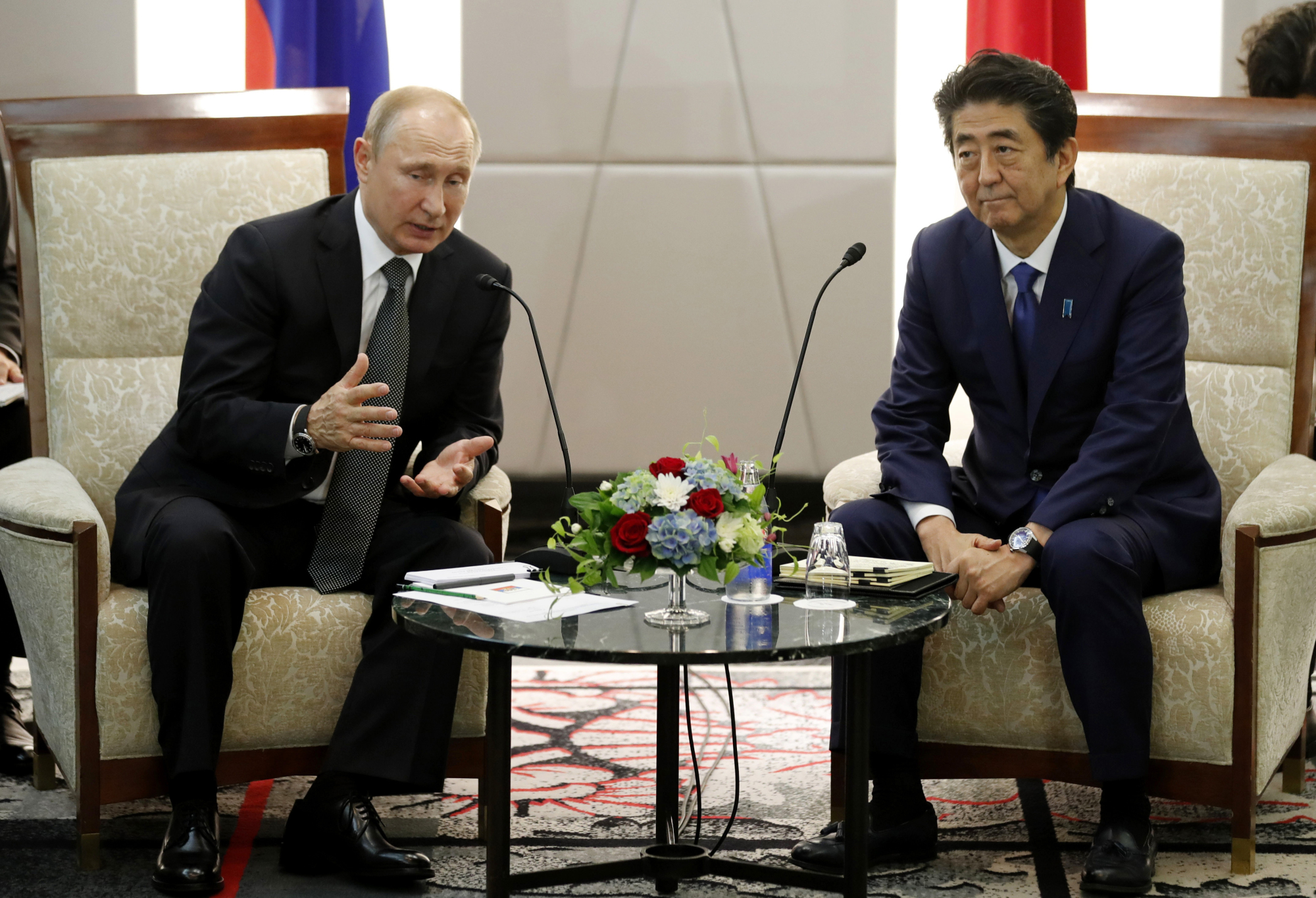Under the leadership of Prime Minister Shinzo Abe, Japan has engaged with Russia as a security partner, thereby taking a very different approach to that of the United States and other Western countries. The aim has been to encourage Moscow to distance itself from an increasingly alliance-like relationship with Beijing. This strategy has long been questionable, but its failure is now undeniable. Russia and China's joint air patrol over the Sea of Japan last Tuesday, which included dangerous violations of national airspace, demonstrates that a reassessment of Japan's security policy toward Russia is now overdue.
The U.S. National Security Strategy clearly presents Russia as a revisionist power and strategic competitor. By contrast, Japan's counterpart document, which was approved by the Abe administration in December 2013, states that "it is critical for Japan to advance cooperation with Russia in all areas, including security."
Guided by this outlook, the Japanese government began to hold "two plus two" meetings with Russia. This format, which brings together foreign and defense ministers, had previously been reserved by Japan for countries with which it had especially close security ties, namely the U.S. and Australia. Added to this, regular meetings were initiated between the heads of the Japanese and Russian security councils.

















With your current subscription plan you can comment on stories. However, before writing your first comment, please create a display name in the Profile section of your subscriber account page.